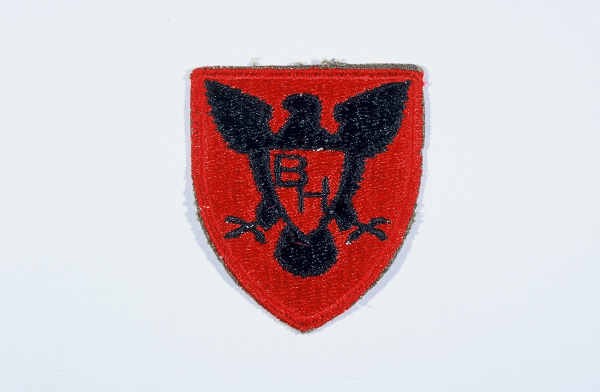The 86th Infantry Division during World War II
In 1985, the United States Holocaust Memorial Museum and the US Army Center of Military History began a program to honor US Army divisions that took part in the Allied liberation of Nazi camps. The US Army Center of Military History defines a liberating division as one whose official records show its presence at a camp within 48 hours of the first soldier’s arrival. The 86th Infantry Division is among the 36 US divisions that have been recognized to date.
Key Facts
-
1
US, British, Soviet, and Canadian troops encountered concentration camps and other sites of Nazi crimes as they advanced across Europe in 1944 and 1945.
-
2
The Allied soldiers liberated sick and starving camp prisoners from Nazi tyranny. They also provided them with food, clothing, and medical aid.
-
3
The United States Holocaust Memorial Museum and the US Army Center of Military History have recognized 36 US divisions for their role in the liberation of Nazi camps.
86th Infantry Division Campaigns during World War II
Activated in 1917, the 86th Infantry Division served in France during World War I. During World War II, the "Blackhawk" division arrived in France in March 1945. It quickly proceeded to Germany, where it took part in the fierce fighting in the Ruhr area. It then was ordered to move southward and crossed the Danube River on April 27, 1945, advancing into Austria.
The 86th Infantry Division and the Liberation of Attendorn
As the 86th advanced into the Ruhr region, the troops discovered the Attendorn civilian forced-labor camp on April 11, 1945. The camp had been established to provide labor to area factories and it housed up to 1,000 conscripted Polish, Soviet, and Czech laborers.
Recognition as a Liberating Division
The 86th Infantry Division was recognized as a liberating unit by the US Army's Center of Military History and the United States Holocaust Memorial Museum in 1996.
86th Infantry Division Battle Casualty Figures
Hundreds of thousands of US servicemen and women died or were wounded in the fight against Nazi tyranny.
The total number of battle casualties for the 86th Infantry Division in the European Theater of Operations during World War II was 785. In this case, “battle casualties” includes all personnel who were unable to fight in battle because they were wounded, missing, captured, or killed.
Among the battle casualties suffered by the 86th Infantry Division, there were 161 deaths.
86th Infantry Division Nickname and Insignia
The 86th Infantry Division’s nickname, “Black Hawk,” originated in 1917 while the unit trained at Fort Grant in Arizona. The 86th was made up mostly of men from the Midwestern states of Illinois, Wisconsin, and Minnesota. The division adopted the nickname to honor the Sauk Nation warrior, Ma-ka-tai-me-she-kia-kiak (1767-1838), known in English as Black Hawk. During the War of 1812, Black Hawk defended Sauk territory in the Midwest from white settlers and the United States Army. The insignia or patch of the 86th reflects the division’s nickname. It is in the shape of a red shield and shows a black hawk with outstretched wings and talons. Imposed upon the breast of the hawk is a small red shield with the letters “B” and “H” in black.

Footnotes
-
Footnote reference1.
In the aftermath of World War II, the US Department of the Army compiled casualty figures for US Army personnel. The US government published these figures in 1953. The report listed casualty numbers for the US Army for the period from December 7, 1941 (Pearl Harbor) through December 31, 1946, when US President Harry S. Truman officially declared the end of war hostilities. Army Battle Casualties and Nonbattle Deaths: Final Report, 7 December 1941-31 December 1946, Prepared by the Statistical and Accounting Branch, Office of the Adjutant General, Under the Direction of the Program Review and Analysis, Division of the Comptroller of the Army, O.C.S., (Washington: Department of the Army, 1953), p. 3-4, 84-89.
Critical Thinking Questions
What challenges did Allied forces face when they encountered the camps and sites of other atrocities?
What challenges faced survivors of the Holocaust upon liberation?

